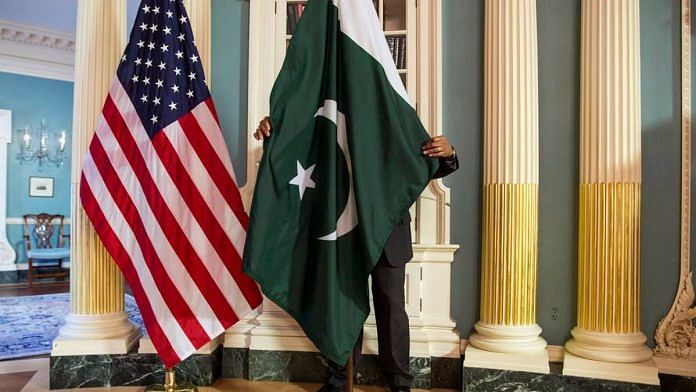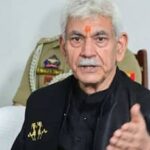The reported invitation to Munir and laudatory mention of Pakistan evoked strong emotions among Indians, including scholars and strategic affairs experts. The equivalence with India, or some would call it the ‘preferential treatment’ offered to Pakistan, a nursery of terrorism, has not gone down too well. The disappointment with the US is palpable; one could call it a ‘heartbreak’ moment.
The reactions are juvenile and are not reflective of how the world works, or has always worked. Hard-nosed realpolitik has been the dominant foreign policy driver since the notion of the modern nation state took root. Nations prioritise their interest over everything else, and the room for morality in the affairs of State is very limited—if any.
Let’s peel this onion.
Canada’s decision to invite PM Modi to the G7 summit, being held next week, despite strained bilateral relations, is not on account of some recently discovered mutual love. The invitation by Canadian PM Mark Carney, overriding strong domestic opposition, is driven by a combination of strategic, economic, and diplomatic motivations. Canada can not afford to ignore the world’s fifth-largest economy and the most populous country, with a central role in global supply chains, particularly for critical minerals, energy, and technology. Canada also has to sell its wares—hydrocarbons, fertilizers, heavy machinery, and equipment related to nuclear installations.
The widely reported assumed invitation extended to Pakistan’s Army Chief later turned out to be inaccurate. The White House has confirmed that no foreign military leaders were invited to the event, refuting earlier reports. However, US enthusiasm in engaging Pakistan’s military remains unabated. Despite a general mistrust of the US and its policies, especially the policy related to Israel-Gaza, among the Pakistani citizens, the Pakistani military wishes to maintain a cordial relationship with the US military. For the US, the gains are obvious. One look at the map would reveal the critical geographic position Pakistan occupies in the Iran-Afghanistan-Pakistan-China region. Access to Pakistan’s assets, airbases, logistics, and staging pads for Special Operational Forces (SOF) would be critical in case the US engages Iran in a full-fledged war.
Moreover, Pakistan’s engagement is crucial to coordinate counterterrorism operations in the Afghanistan-Pakistan region. The US is also keen to wean Pakistan away from China, as Pakistan turning into a Chinese vassal State would be a national security nightmare for the US.
General Kurilla, the CENTCOM chief, while appearing before the US Senate Committee on Armed Services, lauded the Pakistan Army for hunting down the ISIS-K terrorists along the Pakistan-Afghanistan border.
One should understand that as CENTCOM commander, he would need Pakistan if his boss asks him to carry out military operations against Iran. Although the US ‘allegedly’ stayed out of the initial waves of Operation Rising Lion (Israel’s airstrikes on Iranian targets), should the situation escalate, CENTCOM would have to get involved. One look at the map, and his operational difficulties would become obvious.
CENTCOM can bring a sizeable Naval force to the battle; however, to be effective, they would have to operate in the Persian Gulf, the Strait of Hormuz, and Pakistani territorial waters. Similarly, for any land or air-based force application, they would need permission from host nations. The available options—Turkey, Iraq, Qatar, UAE, Saudi Arabia, Oman, Kuwait—don’t look good, as none of these Islamic nations are likely to give unrestricted access to the US for strikes against Iran. Pakistan offers a viable alternative. Even if Pakistan doesn’t permit the deployment of capital assets like a Carrier Battle Group (CBG) or fighter squadrons, it could permit drone operations and allow staging bases for Special Operations.
Pakistan’s active support would be extremely critical to all his war plans that involve Iran or Afghanistan. Historically, the Pakistan military has maintained very good relations with the US military despite adverse public opinion about the US at home and occasional adverse comments from senior US officials. This statement by CENTCOM’s chief should be seen as a self-serving tactic aimed at furthering his agenda of extracting greater cooperation from Pakistan and nothing else.
Kapur was speaking during his Senate confirmation hearing. Figuratively speaking, he was appearing for a job interview; the job being Assistant Secretary of State for South and Central Asian Affairs. Coordinating with Pakistan was a part of his job description. He could not have said that “I will ignore Pakistan”. He is expected to look after US interests and maintain bilateral relationships with India and its neighbouring countries, including Pakistan, Bangladesh, and Afghanistan. For the record, he also said this about India, “If confirmed, I will work to further advance US-India relations and put our partnership on course to realise its tremendous promise.”
The recent US outreach to Pakistan is being seen by many in India as ‘betrayal’. Coming on the heels of Operation Sindoor, the frayed nerves are very perturbed by the turn of events. The calls for curtailing relations with the US are gaining traction. Some are comparing the United States with an adulterous partner that can never be trusted—the call for a breakup is getting louder. No harm would be done if this angst blows over and some other occurrence/event takes over the news cycle.
However, it must be understood clearly that the US is pursuing its national interest without much concern for ‘feelings’ in India, and so is Pakistan. We would be better advised to strengthen our comprehensive national power (CNP) rather than worry about what others are doing. The statements by two senior officials should be seen as something that further their careers and the interests of the institutions that they serve. There is no room to accommodate Indian ‘feelings’.
As far as limiting or curtailing ties with the US is concerned, naysayers must consider our strategic and defence equipment dependence on America. Some of our critical defence equipment is imported from the US, including C-17 Globemaster, C-130J Super Hercules, P-8I Poseidon, MQ-9B Skyguardian, AH 64 Apache, CH-47 Chinook, M 777 Howitzer and a plethora of weapons, sensors and avionics suites. Not to forget the engine (GE 404/414) for our crown jewel—LCA Tejas.
Nations prioritise their interests above all else. The US engages Pakistan not out of affection but because of its strategic utility in helping with counterterrorism, maintaining regional presence, and countering China. And Canada’s invitation to PM Modi is driven by economic and geopolitical necessities, not a resolution of bilateral tensions. The room for morality or “feelings” in statecraft is limited.
India’s disappointment stems from an expectation that its growing global stature should preclude the US from engaging Pakistan. However, realpolitik dictates that nations maintain relations with multiple actors, even those with conflicting interests. Similarly, the heartbreak is misplaced; the focus should be on leveraging India’s growing stature to shape global outcomes, rather than reacting to perceived slights.
In sum, it’s much ado about nothing.
(Edited by Ratan Priya)







